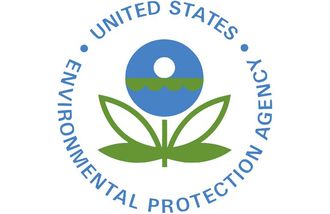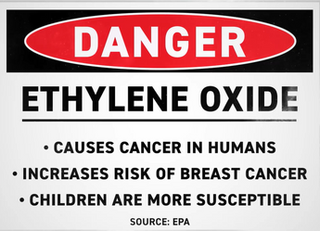Invisible cancer-causing gas may threaten communities

In cities nationwide, massive industrial parks sit steps away from heavily populated neighborhoods that typically include schools and daycare facilities. Among the businesses residing in industrial parks are those specializing in commercial sterilization. Truckloads of medical equipment are sterilized using a colorless, odorless gas called ethylene oxide, also known as EtO, to clean billions of medical devices that require such cleaning.
But there's a problem. The gas, known to cause cancer, can also make its way into the air surrounding the facility.

The EPA regulates Ethylene Oxide as an air toxic, and promised this year to review Clean Air Act regulations for other options to stem emissions from commercial sterilizers. The agency hasn’t updated air toxics standards for EtO since they were established in the 1990s, but released a risk assessment in 2016 that revealed the chemical to be 60 times more toxic than originally thought.
The Environmental Protection Agency is also facing legal action, with environmental groups threatening to sue the agency for missing a self-imposed deadline to revise existing sterilizer rules. The EPA has been touring the U.S. to inform communities about ethylene oxide risks, following an independent watchdog report that revealed the agency delayed critical risk disclosures for areas neighboring sterilization facilities.

Imagine finding out your health may be threatened by an invisible gas leaking into your community.
According to the EPA, long-term exposure to EtO increases the risk of cancers of the white blood cells, increases the risk of breast cancer in females, and it's believed that children are more susceptible to the health impacts from the gas.
Regarding community risk, the EPA claims, "People who live near facilities that release EtO to the outdoor air may be exposed to EtO, depending on how much EtO is released and how close they live to the facility. The greatest cancer risk is for people who have lived near a facility releasing EtO into the air for their entire lifetime."

Those claims may have gotten a boost from a jury in Cook County, Ill., which ruled on Sept. 19 that medical sterilizer Sterigenics’ Willowbrook plant emitted toxins that contributed to the plaintiffs' breast cancer over three decades. The plaintiff argued the company knew of the health hazards of the chemical but didn’t warn the community.
There’s a growing list of more than 700 ethylene oxide, or EtO, personal injury and medical monitoring claims in courts across the US, including Pennsylvania, Georgia, Illinois, and New Mexico.
1-800-LAW-FiRM and its partners are investigating claims on behalf of families across America who were unknowingly exposed to ethylene oxide.
